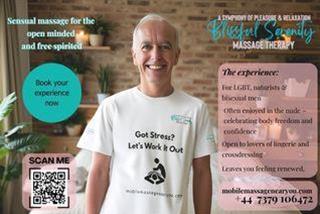Handy LGBTQ+ facts
History of the Red Ribbon
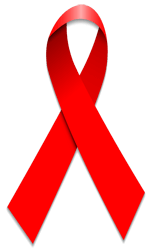 In the late 1980s, AIDS had been in the United States for almost a decade. AIDS became the number one killer of young men in New York City, then spread to
young men in the rest of the country.
In the late 1980s, AIDS had been in the United States for almost a decade. AIDS became the number one killer of young men in New York City, then spread to
young men in the rest of the country.
New York artist Patrick O'Connel would spend days visiting friends in the hospital, going to funerals, and coming home to a panicked answering machine
message from friends who just learned they were sick.
O'Connel along with other 12 other Manhattan artists who formed the Visual AIDS Artists Caucus
wished to create a visual symbol to demonstrate compassion for people living with AIDS and their caregivers.
Inspired by the yellow ribbons honouring American soldiers serving in the Gulf war, the colour red was chosen for its, "connection to blood and the
idea of passion, not only anger, but love, like a valentine." First worn publicly by Jeremy Irons at the 1991 Tony Awards the ribbon soon became
renowned as an international symbol of AIDS awareness.
History of the Gay Rainbow Flag
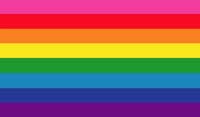 Ever wondered about the history of the gay rainbow flag?
Ever wondered about the history of the gay rainbow flag?
The first Rainbow Flag was designed in 1978 by Gilbert Baker, a San Francisco artist, who created the flag in response to a local activist's call for the need of a community
symbol. Baker designed a flag with eight stripes.
The number of stripes was later reduced to six. Blue replaced turquoise and pink and indigo were removed.
"It was quite hard to get hold of the hot pink material at the time," says Graham Bartram, chief vexillologist at the Flag Institute. "So it was discarded.
In those days you had to sew flags together out of existing materials rather than print them out, as happens now.
- Pink: Sexuality
- Red: Life
- Orange: Healing
- Yellow: Sunlight
- Green: Nature
- Turquoise: Art
- Indigo: Harmony
- Violet: Human spirit
Country rights
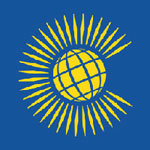 Here we list countries where, at the time of writing (October 2023), it is illegal to be gay or lesbian. It is a complex patchwork of different laws and penalties in
different countries. Some of these countries turn a blind eye, if it’s kept discrete and out of the way, while others will execute you for any homosexual behaviour.
One view is that the British Empire ‘exported’ the criminalisation of homosexuality around the world in the last couple of centuries; paradoxically,
the UK has often led the world in LGBTQ rights in modern times.
Here we list countries where, at the time of writing (October 2023), it is illegal to be gay or lesbian. It is a complex patchwork of different laws and penalties in
different countries. Some of these countries turn a blind eye, if it’s kept discrete and out of the way, while others will execute you for any homosexual behaviour.
One view is that the British Empire ‘exported’ the criminalisation of homosexuality around the world in the last couple of centuries; paradoxically,
the UK has often led the world in LGBTQ rights in modern times.
Hanky codes
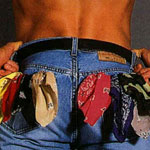 The handkerchief code, the bandana code is a colour-coded system, employed usually among the gay male casual-sex seekers or BDSM practitioners,
to indicate preferred sexual fetishes, what kind of sex they are seeking, and whether they are a top/dominant or bottom/submissive.
The handkerchief code, the bandana code is a colour-coded system, employed usually among the gay male casual-sex seekers or BDSM practitioners,
to indicate preferred sexual fetishes, what kind of sex they are seeking, and whether they are a top/dominant or bottom/submissive.
If you have always wanted to know what those hanky's mean that are sticking out of guys and dolls
pockets but where to shy to ask, then the hanky codes is your answer.
LGBTQ+ flags
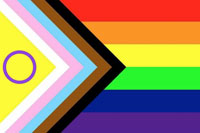 Gilbert Baker designed the rainbow Pride flag for the 1978 San Francisco Gay Freedom Day celebration. The flag does not depict an actual rainbow. Rather, the colours of the rainbow are displayed as horizontal stripes.
Gilbert Baker designed the rainbow Pride flag for the 1978 San Francisco Gay Freedom Day celebration. The flag does not depict an actual rainbow. Rather, the colours of the rainbow are displayed as horizontal stripes.
If you have always wanted to know what all the gay & LGBTQ+ flags represent then this is your place to look.
Slang dictionary
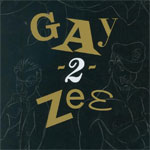 If you have always wanted to know what those slang words that every uses but where too shy to ask, or
if you wanted to know where they came from then the gay dictionary is your answer
If you have always wanted to know what those slang words that every uses but where too shy to ask, or
if you wanted to know where they came from then the gay dictionary is your answer
We have a total of 665 words listed.
Slang dictionaryUK Gay & Lesbian History
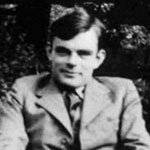 A timeline of the most important legal milestones on lesbian and gay equality in the UK including the eventual decriminalisation of homosexuality between men,
a gradual process that took place between 1967 and 2003 in England & Wales and on other timelines in Scotland and Northern Ireland. It chronicles the main changes in the
law affecting lesbians and gay & bisexual men in the UK over the last 500 years.
A timeline of the most important legal milestones on lesbian and gay equality in the UK including the eventual decriminalisation of homosexuality between men,
a gradual process that took place between 1967 and 2003 in England & Wales and on other timelines in Scotland and Northern Ireland. It chronicles the main changes in the
law affecting lesbians and gay & bisexual men in the UK over the last 500 years.
My coming out story
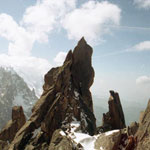
I used to be very homophobic and had a very butch life. Coming out to me was not telling other people but admitting to myself that I was gay.
I had a very serious climbing incident on the Bonatti Pillar in the French Alps, that made me re-look at life.
No way was I going to live. I had two ways to die and gave myself 24 hours to choose how to die after being stuck alone 4,000M up a mountain
for 6 days, 4 days without food and water.




